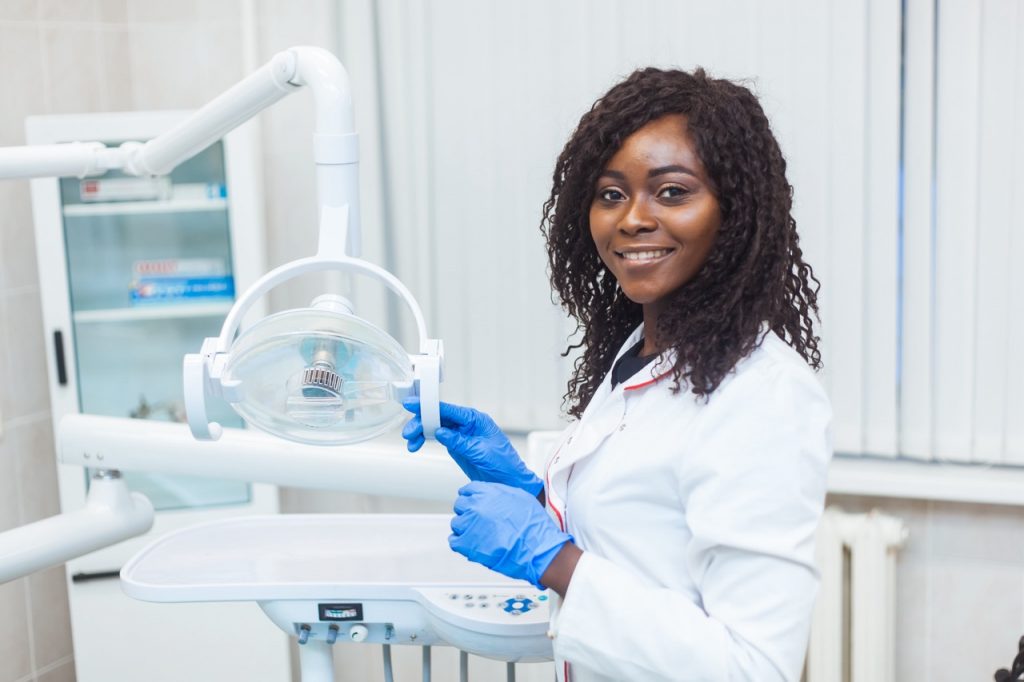Resource Library
Start Reading
Do you hear clicking or popping noises when you open and close your mouth?
Are you experiencing tightness or muscle spasms in your cheeks or around your ears?
Do you feel pain in your jaw when you eat or speak—or even when you yawn?
These symptoms may indicate you have TMJ disorder, commonly called “TMJ.”
Dr. Stefania Brazzoli is a diplomate of the American Board of Orofacial Pain. She is also an instructor in the Department of Oral Medicine at the University of Pennsylvania School of Dental Medicine.
She recently answered questions about TMJ our patients at Penn Dental Family Practice (PDFP) often ask.
Watch the video above and read this edited and expanded version of Dr. Brazzoli’s answers. They will help you better understand what TMJ disorder is, why it occurs, and how to treat it.
 The acronym “TMJ” stands for the temporomandibular joint. This joint is like a hinge connecting your lower jaw to your skull. It is important in everyday activities like talking, chewing, and even breathing.
The acronym “TMJ” stands for the temporomandibular joint. This joint is like a hinge connecting your lower jaw to your skull. It is important in everyday activities like talking, chewing, and even breathing.
Basically, everybody has TMJ! We have two TMJs, to be precise.
But when we talk about “having TMJ,” we’re talking about problems of the TMJ. We’re talking about TMJ disorders: problems of the jaw joint itself, and also problems in the facial muscles.
We think there is a genetic predisposition toward TMJ, and that other factors can aggravate the problem. Those factors can include, for example, injury or trauma of the face and jaw, teeth grinding, arthritis, and even stress.

The most common symptoms of TMJ include:
The symptoms of TMJ disorders aren’t just limited to the TMJ itself. They can also include neck pain, shoulder pain, and sometimes sounds in the ear like ringing or pulsating sounds. TMJ disorder headaches can also occur.
TMJ’s duration can vary in intensity and severity. Sometimes it is an acute pain that comes and goes; sometimes, it lasts longer. Seeking appropriate treatment is important to prevent lifelong issues.
Physical therapy is the main treatment for TMJ. Other treatment options can include:
Acupuncture, cognitive behavioral therapy (CBT), and relaxation techniques are supporting treatments for TMJ. They can help.
In rare, extremely severe cases, we actually suggest surgery as the last step of treatment.
 Recently, Botox has been mentioned as a possible treatment for TMJ. The FDA has not approved Botox for treating TMJ. It can be helpful in certain cases. But so far, we don’t have enough proof to support its use to treat bruxism (clenching or grinding teeth) in general or TMJ in particular.
Recently, Botox has been mentioned as a possible treatment for TMJ. The FDA has not approved Botox for treating TMJ. It can be helpful in certain cases. But so far, we don’t have enough proof to support its use to treat bruxism (clenching or grinding teeth) in general or TMJ in particular.
Patients can partially take care of the problem themselves. They can apply an ice pack, practice relaxation techniques, or avoid chewing certain kinds of food.
However, receiving appropriate treatment from dental professionals trained in how to treat TMJ disorder is the best way to prevent possible long-term issues.
If you’re ready for relief from the discomfort and pain TMJ disorders can cause, consult the dental professionals at PDFP. We provide expert, compassionate, and affordable care.
Schedule your appointment online now or call us at 215-898-PDFP (7337).